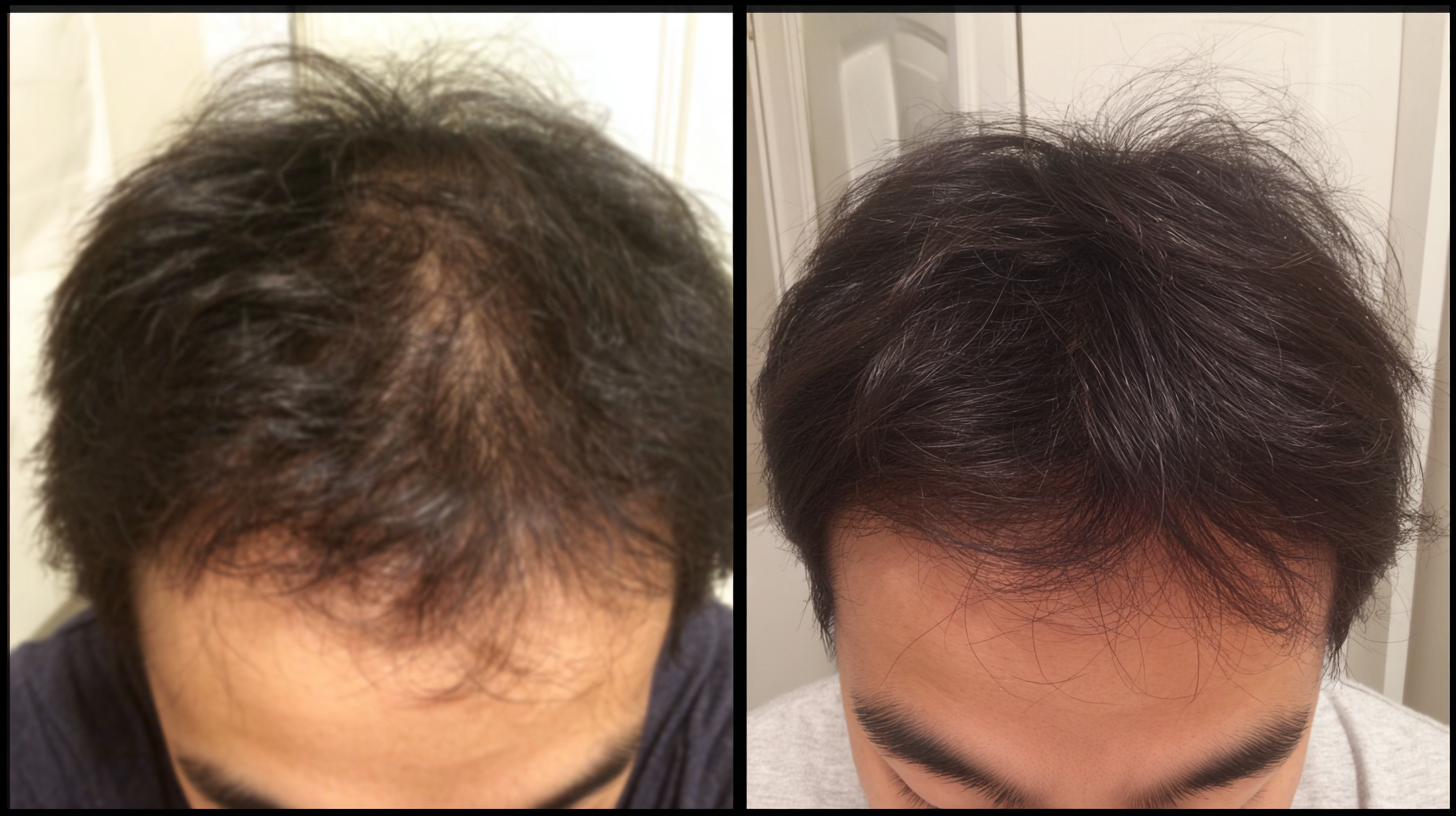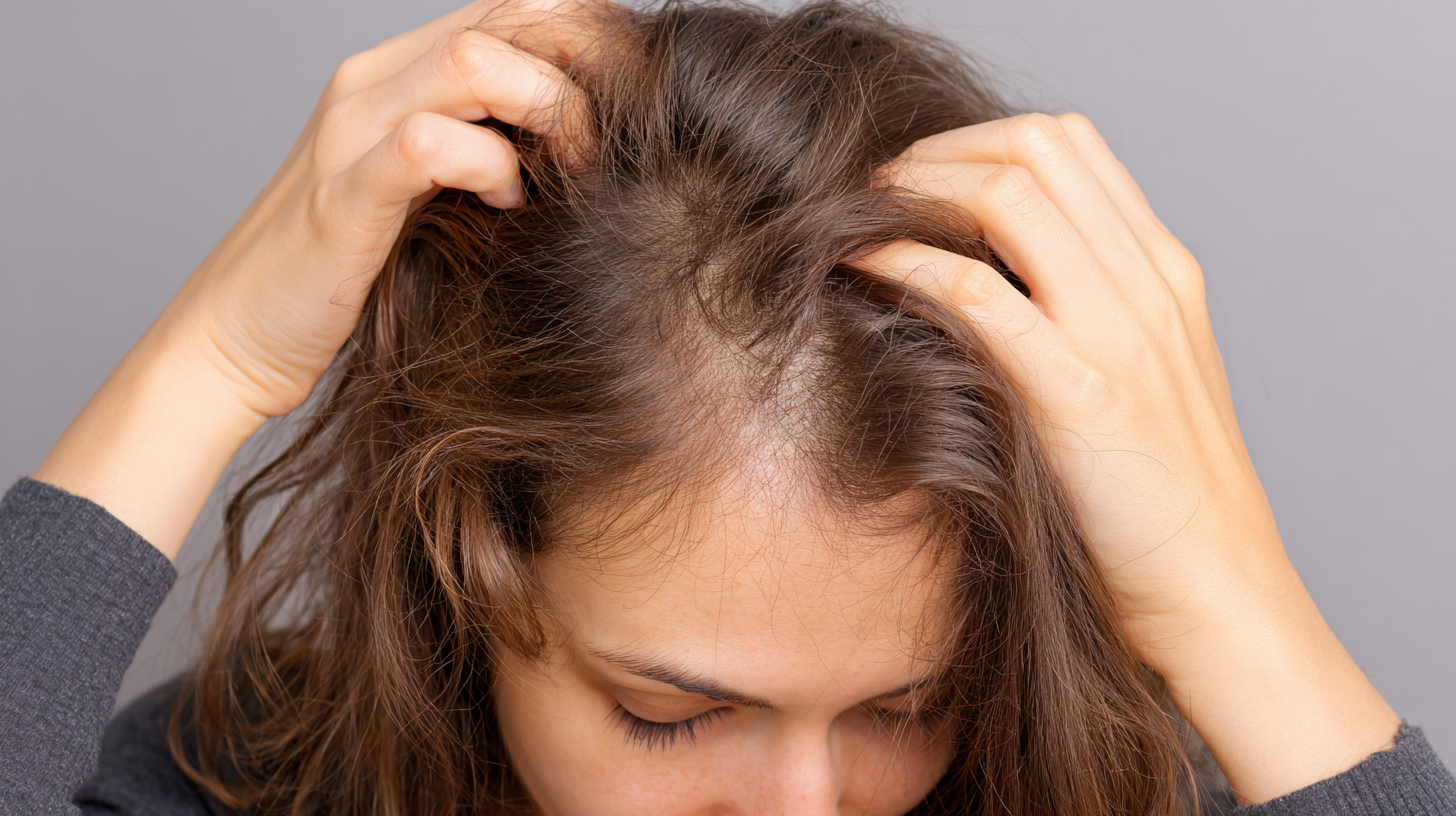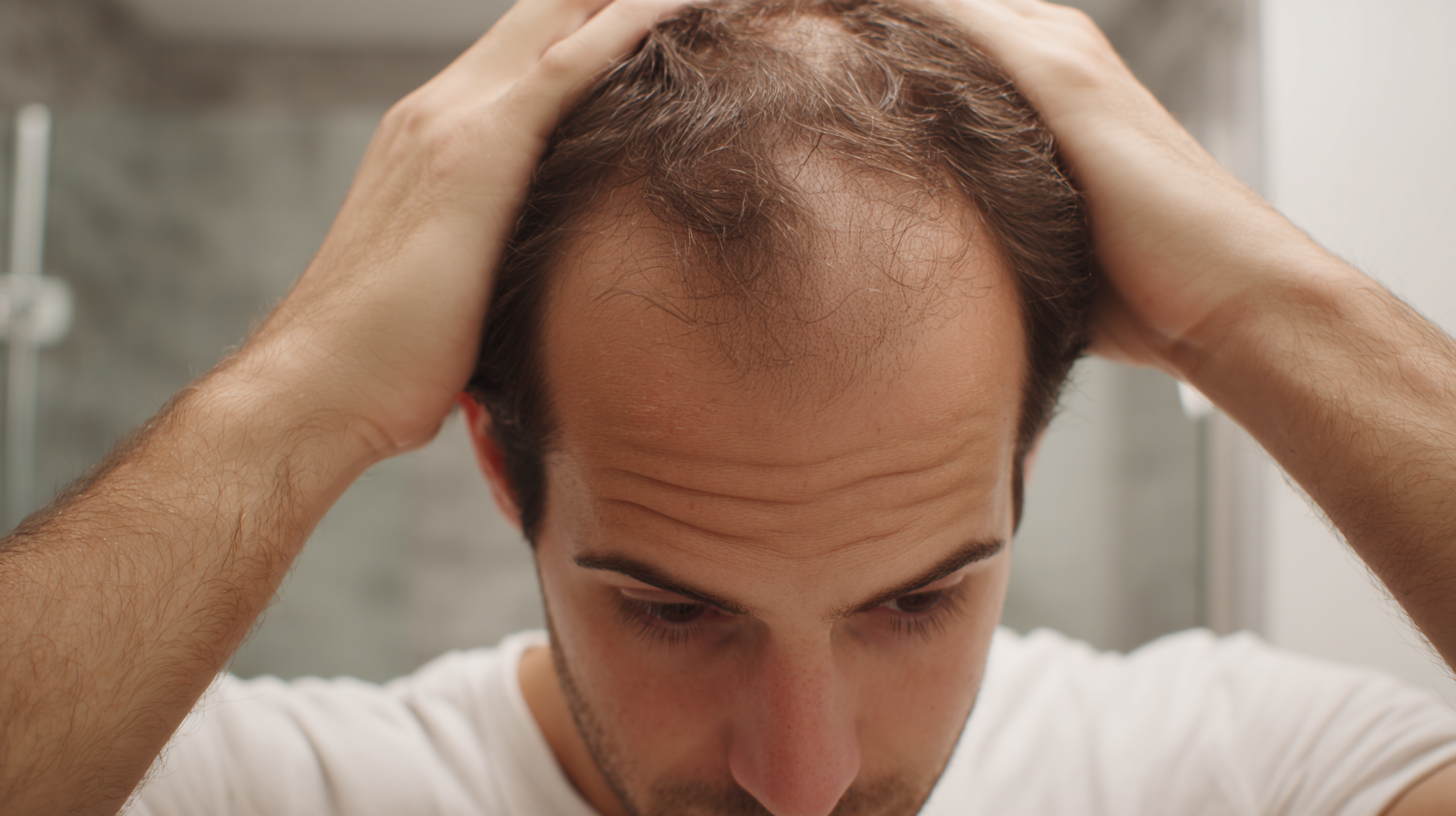
-
Home
-
Products
-
About US
-
FAQ
-
News
-
Tips
-
Contact Us
Leave Your Message
- Phone
- E-mail
- WhatsApp
- WA Business



As the global market for hair loss dietary supplements continues to expand, projected to reach USD 3.3 billion by 2025 according to a recent industry report, the search for natural alternatives has become more critical than ever. With increasing awareness about the efficacy and safety of herbal and botanical supplements, consumers are shifting their focus away from synthetic options. This shift is fueled by a growing body of research emphasizing the potential benefits of natural ingredients, such as saw palmetto and biotin, in promoting hair regrowth and preventing hair loss. In this evolving landscape, understanding the best hair loss dietary supplement becomes paramount for those seeking effective solutions without the side effects often associated with traditional pharmaceuticals. This blog will delve into the latest trends and innovations in the natural supplement space, exploring the options available for individuals grappling with hair loss.

In recent years, the significance of natural ingredients in hair loss supplements has garnered increasing attention within the health and wellness industry. According to a 2022 report by Grand View Research, the global market for hair loss treatments is projected to reach $12.3 billion by 2030, with consumers showing a growing preference for products that incorporate natural components. This shift reflects a broader trend towards holistic health and a desire to avoid synthetic substances that may pose health risks.
Natural ingredients such as biotin, saw palmetto, and pumpkin seed oil have demonstrated efficacy in promoting hair growth and overall scalp health. A study published in the Journal of Dermatological Treatment found that saw palmetto, for instance, can inhibit the formation of dihydrotestosterone (DHT), a hormone linked to hair loss in both men and women. Furthermore, biotin, often hailed as the "hair vitamin", plays a crucial role in the production of keratin, which is essential for strong and healthy hair. These findings underscore the importance of incorporating naturally derived ingredients into dietary supplements aimed at combating hair loss, making them a preferred choice for consumers seeking safe and effective solutions.
When it comes to hair loss, many people are turning to natural alternatives that promote effective hair regrowth. One of the most popular options is biotin, a B-vitamin known for its role in cellular production and keratin formation. Incorporating biotin-rich foods like eggs, nuts, and sweet potatoes into your diet can significantly contribute to strengthening hair and preventing further loss.

Another powerful natural alternative is saw palmetto, an herbal remedy derived from the berries of the saw palmetto plant. Research suggests that it may block the hormone responsible for hair thinning, making it a promising option for those seeking to improve their hair health. Additionally, certain essential oils, such as rosemary and peppermint oil, have been shown to stimulate blood circulation in the scalp, leading to improved hair growth. By integrating these natural supplements into your routine, you can nourish your hair from the inside out while reducing reliance on chemical products.
Vitamins and minerals play a crucial role in maintaining hair health and preventing hair loss. Recent studies indicate that deficiencies in certain nutrients can lead to increased hair shedding and alopecia. For instance, a report published in the Journal of Dermatology found that nearly 50% of individuals with hair loss exhibited inadequate levels of iron, a mineral essential for oxygen transport to hair follicles. Iron deficiency anemia is one of the most common nutritional deficiencies globally, affecting around 30% of the population, making it vital to address this issue for optimal hair growth.
Additionally, vitamins such as biotin and vitamin D have garnered significant attention in the realm of hair health. A clinical trial reported in the International Journal of Trichology highlighted that biotin supplementation improved hair growth in participants with thinning hair. Furthermore, vitamin D is known to activate hair follicle cycling; research shows that individuals with low levels of this vitamin are more likely to experience hair loss. Supplementing with vitamins and minerals offers a natural approach to enhancing hair health, thereby supporting the body’s intrinsic ability to foster robust hair growth.
| Nutrient | Role in Hair Health | Food Sources | Recommended Daily Intake |
|---|---|---|---|
| Biotin | Promotes keratin production, improving hair structure | Eggs, nuts, seeds, salmon | 30 mcg |
| Vitamin D | Stimulates hair follicles | Fatty fish, cheese, mushrooms | 600 IU |
| Iron | Supports red blood cell production; oxygenates hair roots | Red meat, lentils, spinach | 18 mg |
| Zinc | Aids in hair tissue growth and repair | Meat, shellfish, beans | 11 mg |
| Omega-3 fatty acids | Promotes scalp health and hydration | Fish, walnuts, flaxseeds | 1.6 g |
When considering dietary supplements for hair health, choosing the right one can seem overwhelming given the myriad of options available. The global marine collagen market, projected to grow from $1.2623 billion in 2025 to $2.31620 billion by 2032, showcases the increasing demand for natural ingredients that support hair vitality, with a compound annual growth rate (CAGR) of 9.06%. This momentum underlines the effectiveness of supplementing with proteins that can enhance hair strength and resilience.
**Tip:** Look for supplements that contain marine collagen and essential vitamins tailored to your needs. Combining these with a balanced diet can optimize hair health, particularly under the stresses of modern life. Additionally, awareness of your overall wellness should guide your supplement choices, as environmental impacts and lifestyle changes increasingly affect hair quality.
Another rapidly growing segment is the gummy vitamin market, anticipated to exceed $6.4 billion in 2024, with an expected CAGR of 10.8% from 2025 to 2034, fueled by the rising interest in beauty and skin health. This trend signals a shift towards more palatable and convenient forms of nutritional support.
**Tip:** When choosing gummy vitamins, ensure they contain biotin, zinc, and antioxidants, which are vital for hair nourishment. Always consult a healthcare professional before starting any new supplement regimen to ensure it aligns with your specific health needs.

In the pursuit of effective hair loss dietary supplements, understanding global manufacturing standards is crucial for ensuring product quality. Many consumers may not realize that the regulatory environment varies significantly from one country to another. By familiarizing yourself with certifications such as GMP (Good Manufacturing Practices) and ISO (International Organization for Standardization), you can make informed decisions about the supplements you choose. These standards help ensure the safety, consistency, and efficacy of hair loss products, providing peace of mind to those seeking natural alternatives.
When selecting a hair loss dietary supplement, consider a few essential tips. First, always look for products that disclose their ingredient sourcing and have undergone third-party testing. Transparency often indicates a commitment to quality. Second, educate yourself on the role of specific natural ingredients known for their hair growth benefits, such as biotin, saw palmetto, and marine collagen. Lastly, reading customer reviews can help gauge the effectiveness of a product. By prioritizing quality and being informed, you can navigate the crowded market of hair loss supplements more effectively.
This chart illustrates the popularity of various natural ingredients used in dietary supplements for hair loss. The scores indicate consumer preference and recognition of these ingredients within the market.